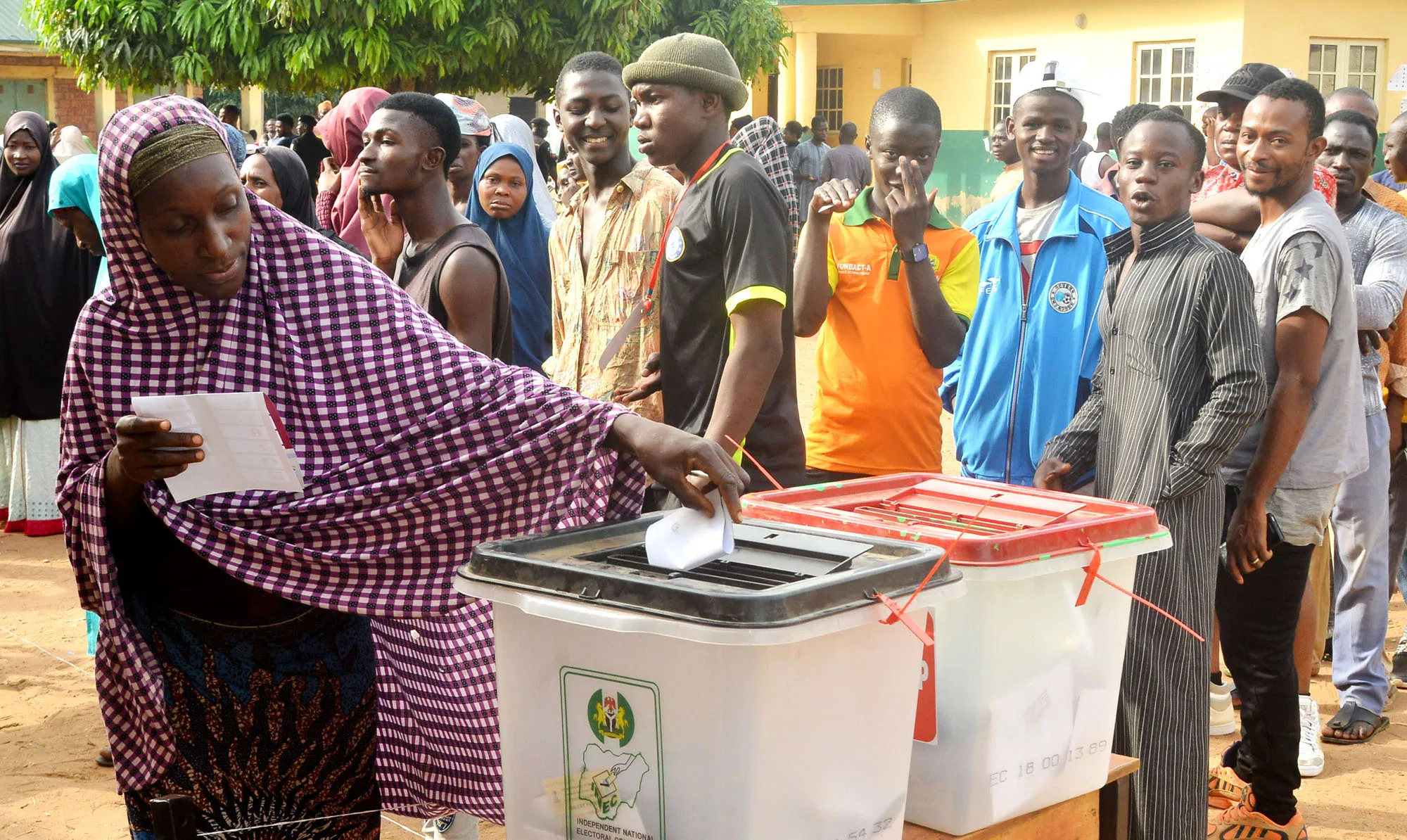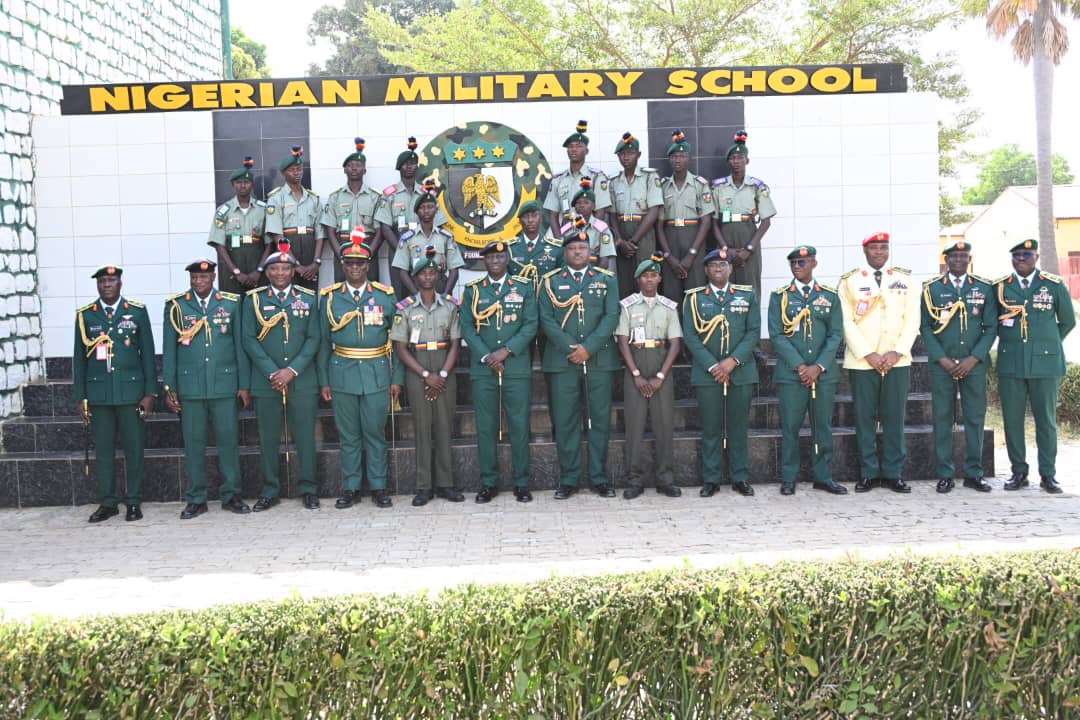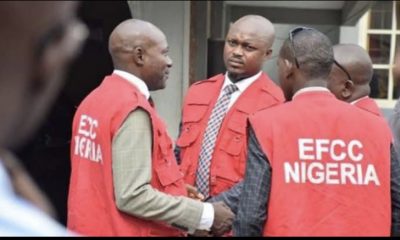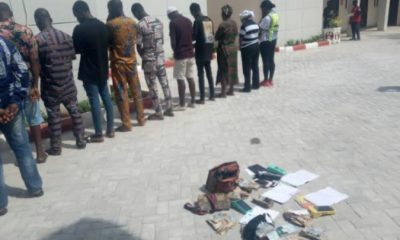DEFENCE
Vote Buying: NGO Recommends use of Body Cameras, Mobile Courts

Ahead of 2023 general elections, a Non-Governmental Organisation (NGO), Good Governance Awareness Initiative (GGAI), has recommended the use of body cameras by security personnel on Election Day to curb the incident of vote buying in the country.
The NGO also advised the Federal Government to set up mobile courts in the 774 local government areas across the country to prosecute vote buying on election day.
The Executive Director, Ms Maureen Onwukwe, stated this in Abuja on Monday at a news briefing and public presentation of a research survey titled: “Why People Sell and Buy Votes in Nigeria”.
Onwukwe, who described election as an integral part of every democracy, added that the problem of “vote buying and selling” presented a fresh danger to the integrity and reliability of elections in Nigeria.
She added that this must be addressed accordingly to give way to the dividend of democracy in the country.
“We are all aware that elections in the country were marred over the years through ballot stuffing and snatching and various degrees of electoral violence.
“However, the technological innovations that was introduced by INEC and the Electoral Act 2022 makes it extremely impossible for political parties to rig election.
“This has made politicians devised another means to manipulate the supposed decision of electorate through inducing them with money to sell their votes.
“Vote buying and selling has become eminent in every recent election, which has hampered the quality and integrity of office holders.
“These problems and many more necessitated this research to underscore the political, social and economic aspect of vote buying and selling,” she said
Onwukwe said that in conducting the research, 1,000 responses were received from potential voters through online and traditional questionnaire system.
She said that 54 per cent of the respondents said that the security agencies were not proactive in curbing vote trading takes, 44 per cent linked vote buying to poverty.
She added that 35 per cent said that threats by political parties forced them to sell out their votes, while 21 per cent said they had lost interest in the electoral process as they believe that their votes would not count.
“The research noted that, it is outside INEC purview to end poverty. However, it is within INEC’s right to protect the integrity of the voting process.
“Thus, the survey recommends that the electoral body takes proactive measures to stop the commercialisation of vote buying.
“Purchasing body cams for police officers at polling units and setting up of mobile courts in the 774 local government of the federation to expedite the prosecution of vote buyers and sellers will help.
“There should also be stiffer penalties for both vote sellers and buyers,” she added.
The executive director further explained that the research has unveiled that electorates are not aware that vote selling constituted an electoral offence.
“Funny enough, 55 per cent of the respondent said that they are not aware that vote selling is an electoral offence.
“This was evident during the just concluded Osun Gubernatorial election, as voters took to social media to brag on selling their votes.
“I think INEC and CSOs should intensify electoral law awareness. People need to know the consequences of selling their votes.
Onwukwe urged INEC to also take proactive measures in promoting the secrecy of voter choice, adding that voting point lack adequate secrecy measures, because vote buyers are able to monitors the choice of voters.
She added that the centre had commenced initiatives to sensitise various electoral stakeholders with programmes that would specifically focus on 10 millions market women and youths.
The Chairman, GGAI, Prof. Charles Nwekealu, in his remarks said since Nigeria independent in 1960, leadership had been one of the challenges facing the country.
Nwekealu said that because Nigeria elections had been characterised with rigging, ballot snatching and violence, the country had not been able to elect the kind of leadership it deserved.
This, according to him, made Nigeria to embark on a number of reforms to ensure that the country has a good electoral system that would lead to electing good leadership.
“Leadership will determined the rise or fall of any country, any country that is lucky to have a dynamic leadership, there is no limit to the demands of that country.
“We believe that this research will help in improving the outcome of the scheduled 2023 general elections in Nigeria,” he said.
Also speaking, Mr Femi Gold, the Chief Superintendent Public Enlightenment and Education Department, Independent Corrupt Practices and Other Related Offences Commission (ICPC) described sensitisation as key in addressing the menace of vote buying.
Gold commended the NGO for the research aimed at addressing vote buying in the country, said that ICPC was already working with some NGOs on vote buying.
He said ICPC was working to expand its partnership with more NGOs including GGAI to extend voters education to all states across the Federation ahead of 2023 general elections.
“What we need is sensitisation. Even the issue of corruption, sensitisation is key. We believe in the power of information.
“Information helps in prevention and it is cheaper. Just as you just heard, some people don’t even know that vote selling is an offence. Hence the need for sensitisation,” he said.
Mr Aleshinloye Farouk, the Programme and Research Manager, GGAI, said the survey revealed that people sell their votes because of poverty.
He said some believed that the money was national cake that needed to be shared.
According to him, the use of body cameras on election day is doable since Federal Road Safety Corps (FRSC) officers use them and it helps during prosecution.(NAN)
DEFENCE
COAS Urges NMS Students to Uphold Discipline, Excellence, Promises Better Learning Environment

By David Torough, Abuja
The Chief of Army Staff (COAS), Lieutenant General Waidi Shaibu, has charged students of the Nigerian Military School (NMS), Zaria, to remain disciplined, focused and committed to academic excellence, describing the institution as a critical foundation for their future roles in national development.
Lieutenant General Shaibu gave the charge on Saturday during an official visit to the school, where he reminded the students that the values and training they receive at NMS would shape their conduct and achievements long after graduation.
He noted that while some of the students would advance to further military training and eventually serve as officers in the Armed Forces, others would pursue careers in tertiary institutions and the wider society, where they are expected to stand out through the discipline and leadership qualities imbibed at NMS.
“Wherever you find yourselves in the future, you will be different from your peers because of the discipline, enthusiasm and leadership values instilled in you here. This institution will always remain part of your life,” the Army Chief said.
The COAS assured the students that the Nigerian Army was making sustained investments to improve teaching methods, enhance classroom facilities and deploy modern technology aimed at providing a world-class learning environment.
He also urged the students to uphold the school’s long tradition of academic excellence, particularly its record of success in inter-school quiz competitions, stressing that hard work and commitment to studies remain essential to success.
“You have emerged through a rigorous selection process and have been introduced to a world-class learning environment. Everything is in place for you to succeed, and you must make the best use of this opportunity,” he added.
Lieutenant General Shaibu commended the officers, soldiers and instructors of the school for their dedication to mentoring the students, describing them as custodians of Nigeria’s future leadership.
“These young men are our future. Ensure they are properly guided, protected and kept on the trajectory of excellence,” he said, while congratulating the entire NMS community and reaffirming the Nigerian Army’s commitment to maintaining high standards in military education and training.
DEFENCE
Maj Gen Waidi Shaibu Assumes Command as 25th Chief of Army Staff

By David Torough, Abuja
The Nigerian Army on Thursday marked a seamless change of leadership as Maj. Gen. Waidi Shaibu officially assumed office as the 25th Chief of Army Staff (COAS).
The handing and taking over ceremony was held at the Army Headquarters, Abuja, between the outgoing COAS, now Chief of Defence Staff (CDS), Lieutenant General Olufemi Oluyede, and his successor.
In his maiden address, Maj.
Gen. Shaibu commended Lieutenant General Oluyede for his exemplary leadership, mentorship, and unwavering commitment to the progress of the Nigerian Army. He praised his predecessor’s accomplishments in equipment procurement, infrastructural development, and the “Soldier First” initiative, which placed troop welfare and operational readiness at the core of Army operations.The new COAS pledged to sustain and build upon the legacies of his predecessor while enhancing collaboration among security agencies to strengthen national security. He assured that the current security landscape would be critically assessed, with prompt responses to emerging threats.
“I salute the courage, passion, resilience, and discipline of our troops in the field. Their sacrifices remain the cornerstone of our collective success,” he stated.
Shaibu expressed deep appreciation to the Commander-in-Chief of the Armed Forces, President Bola Ahmed Tinubu, GCFR, for entrusting him with the leadership of the Nigerian Army. He also led senior officers in observing a minute’s silence in honour of fallen heroes.
In his valedictory remarks, the outgoing COAS and new CDS, Lieutenant General Olufemi Oluyede, appreciated President Bola Tinubu for his visionary leadership and the opportunity to serve. He lauded officers and soldiers of the Nigerian Army for their dedication and urged them to remain loyal and committed under the new leadership.
“The mission remains the same — to ensure the security of lives and defend the territorial integrity of our nation,” he said.
Earlier, the former Chief of Policy and Plans (Army), Maj. Gen. Abdulsalami Ibrahim, described General Oluyede as a selfless and visionary leader whose impact would be remembered by generations of officers.
The event featured the signing of handover documents, decoration of the new Army Chief with Headquarters insignia, inspection of the quarter guard, and group photographs with senior officers and field commanders.
DEFENCE
Armed Forces Sustain Nationwide Onslaught, Record Major Gains Against Terrorists, Criminals

By David Torough, Abuja
The Armed Forces of Nigeria have sustained an aggressive nationwide campaign against terrorists, bandits, and other criminal groups, recording major operational successes across all theatres within the week ending October 16, 2025.
Director of Defence Media Operations, Major General Markus Kangye, who disclosed this during the weekly press briefing in Abuja, said the operations reflected the continued dedication, professionalism, and discipline of Nigerian troops on land, in the air, and at sea.
According to him, coordinated operations under various Joint Task Forces—Operation HADIN KAI in the North East, Operation FANSAN YAMMA in the North West, Operations ENDURING PEACE and WHIRL STROKE in the North Central, Operation DELTA SAFE in the South-South, and Operation UDO KA in the South-East—resulted in the neutralisation of several terrorists, arrest of criminal elements, and rescue of kidnapped victims.
In the North East, troops denied Boko Haram, ISWAP, and JAS fighters freedom of movement through aggressive ground and air operations in parts of Borno, Yobe, and Adamawa States. Scores of terrorists were eliminated, 16 collaborators arrested, and seven hostages rescued. Troops also recovered assorted weapons, vehicles, and ₦5.14 million in cash.
Similarly, in the North West, troops sustained their offensive against bandits in Sokoto, Zamfara, Kebbi, Kaduna, and Niger States. Several terrorists were killed, 14 arrested, and six kidnapped victims rescued. A gunrunner and two drug cartel members were also apprehended with 1,307 live ammunition, motorcycles, narcotics, and ₦227,000.
In the North Central region, under Operations ENDURING PEACE and WHIRL STROKE, troops carried out raids and responded to distress calls in Plateau, Kaduna, Taraba, Benue, Nasarawa, and Kogi States, neutralising criminals and rescuing 17 kidnap victims. Four suspects were also convicted and sentenced by a magistrate court in Plateau State.
In the South-South, Operation DELTA SAFE troops foiled oil theft valued at over ₦98.7 million, destroying 11 illegal refining sites and arresting 13 suspects. The troops also seized large volumes of stolen petroleum products and dismantled multiple illegal refining facilities across Delta and Rivers States.
Meanwhile, in the South-East, troops of Operation UDO KA arrested a notorious IPOB/ESN commander known as Gentle alongside eight accomplices in Imo and Ebonyi States. A female logistics supplier linked to the group was also apprehended in Abia State, where three children of a wanted terrorist leader were found in her custody.
Major General Kangye commended the gallant troops for their bravery and sacrifices, assuring Nigerians that the Armed Forces remain steadfast and resolute in securing the nation.
“Our recent operational successes—whether in counterterrorism, anti-banditry, maritime security, or internal operations—are not just battlefield victories but clear demonstrations of our resolve to secure every inch of Nigeria,” he stated.
He urged citizens to continue supporting the military through credible intelligence sharing, noting that collective cooperation remains vital to achieving lasting peace and stability across the country.






























